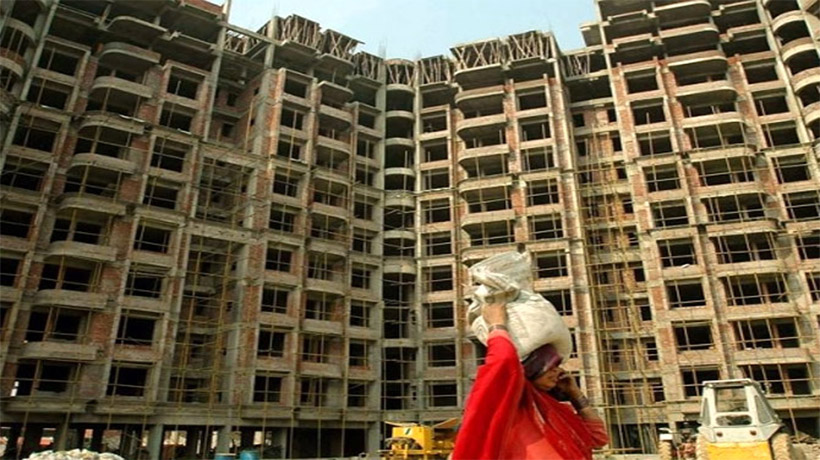Trending Now
- 830 voters names go missing in Kavundampalayam constituency
- If BJP comes to power we shall consider bringing back electoral bonds: Nirmala Sitaraman
- Monitoring at check posts between Kerala and TN intensified as bird flu gets virulent in Kerala
India News
A year-end review of the real estate market in 2017 and what we can expect in 2018
![]() December 27, 2017
December 27, 2017
The year 2017 has been an eventful year for the real estate market in India. The ease of doing business rating, and some thumbs up from Moody’s has been the positives apart from the PPP model making a huge difference to the affordable housing segment. Not to forget, that the year started with a lot of uncertainty owing to demonitisation that threw off many real estate companies. The buyers and the sellers were all confused and the road ahead wasn’t very clear. But any change has to be institutionalised for it to be long term. Demonetisation in many ways was the beginning of a new regulatory regime that introduced regulatory norms for the whole market.
Not to forget the Benami Properties Act, followed by RERA and GST. These reforms slowed down the market initially because everyone was waiting it out till the policies were in place but now it is a lot more clear; to the buyers and sellers. “As a landmark year for the country and for the real estate industry, soon it’s going to close, like any other sector the real estate segment also experienced many ups and down in this year. Some of the biggest game-changing policies like GST and RERA were implemented in the year, which aim at bringing transparency and accountability in the sector. Clarity on the applicable GST rate for the real estate sector is still expected in the next year. We can say that in longer period both RERA and GST will bring smiles on the face of the developer as well as for the home buyer. Affordable housing finally got the much-coveted infrastructure status. One crore houses are to be built in rural India by 2019, and this vital segment will now see cheaper sources of finance which will give further boost to the sector.
The country’s real estate markets are definitely poised for growth in the medium-to-long term on the back of higher transparency and further consolidation. The demonetization move showed considerable beneficial; however, along with the Benami Transactions Act, it proved to be profitable to the entire segment,” says Ssumit Berry, Managing Director, BDI Group. Agreeing to a lot of the above views, Pankaj Bansal, Director, M3M Group says, “With improved ease of doing business rankings, enhanced political stability & economy expected to regain its momentum, the overall investment climate in India is expected to substantially improve in 2018. The year 2017 saw multiple policy interventions like RERA, etc. and we expect the regulatory environment to become stable during 2018. Interest rates have already moderated and are expected to come down further making the cost of borrowing cheaper for buyers as well as developers. Given all these factors, we believe the outlook for Real Estate for the year 2018 is positive and it will be a good time to invest in real estate.”
Talking of 2017 as a landmark year for the economy, President, Vineet Taing, Vatika Business Centre also points out an industry trend that shouldn’t be missed. “2017 has been a landmark year both for the Indian Economy and the Indian Real Estate. Policies such as RERA & GST have ushered in transparency and stroked confidence among buyers. Talking specifically about the Commercial Realty segment, co-working spaces and business centres have become the preferred choice in a short span of time, thanks to the rapid urbanization. Across the country, co-working spaces and business centres have been in great demand with freelancers, startups and small and medium businesses flocking there for the amenities, prices, and flexibility and networking opportunities. Additionally, another interesting industry trend that’s been observed is office occupiers in Gurgaon are pre-committing office spaces in under-construction especially in central business districts of Gurgaon to secure themselves against high or rising future rentals. For the year 2018, the tidal growth for office spaces will continue as larger corporates and smaller companies are increasingly opting for co-working spaces.”
There is no doubt that understanding of GST has been very simple for traders and entrepreneurs. Many have complained of complexity of the entire thing which in turn is impacting their business. But Managing Director Gaurav Mittal, CHD Developers Ltd puts things in perspective. “Recent government initiatives including RERA, GST along with Real Estate Investment Trusts (REITs) will help improve transparency in the long run and thus increase buyers confidence in the real estate sector. With the overall market moving towards ease of doing business, we can expect potential buyers(end users) to relook at the market for investment opportunities. Having less project launches and uniform absorption will leads to increase in demand hence, improving sector in coming year. Also, 2018 will be the year of affordable housing. Since the market is consumer friendly, buyers will tend to invest in affordable housing segment owing to great options at affordable prices and good investment returns with time bound possession. The loan interest rates are low, making banks more supportive and thereby encouraging the buyer to invest. We believe that the long term market dynamics for the sector will remain positive, especially in the residential market.”
What does 2018 hold for us?
“The countdown for 2018 has already begun. Year 2017 brought much revival for the real estate industry. By introducing regulations like RERA, Benami Transaction Prohibition, REITS, GST there is a long-term industrial growth and it also impacts on ease of business by transparency at work. On the demand side, the office space requirements of sectors such as manufacturing, logistics, FMCG, etc., showed positive signs, and we expect this to continue in the coming time ahead. Many malls which were to be completed in 2017 were completed in the year and many malls are to be developed in coming time. Many developers, private equity players are also partnering with developers active in this space to earn more profit in the sector. We believe that the Indian real estate sector will emerge stronger, healthier and capable of long periods,” says Ravish Kapoor, Director, Elan Group. Echoing similar thoughts, Director, Rahul Singla, Mapsko Group says, “The year 2017 has been good for the real estate fraternity: with this, 2018 is going to be the best time to invest in this sector. The developers will take active interest and buyers will have huge range of properties to choose from and purchase. Demonetisation, which was done to crack down the black money, was finally proved to be beneficial for the segment in 2017; hence it will bring better economy to the country. Goods Service Tax (GST) would bring a lot of transparency in the real estate sector and minimize unscrupulous transactions in 2018. RERA whose main function is to bring accountability in the sector by streamlining the entire process is not going to have much of the effect on the organised sector, the unorganized sector are going to face problems relating to it. Ready to move –in- apartments are going to earn extra interest from the buyers as these save the construction timing and are the best option for them. The future is bright as the market is expected to pick up and continue like this.”





















